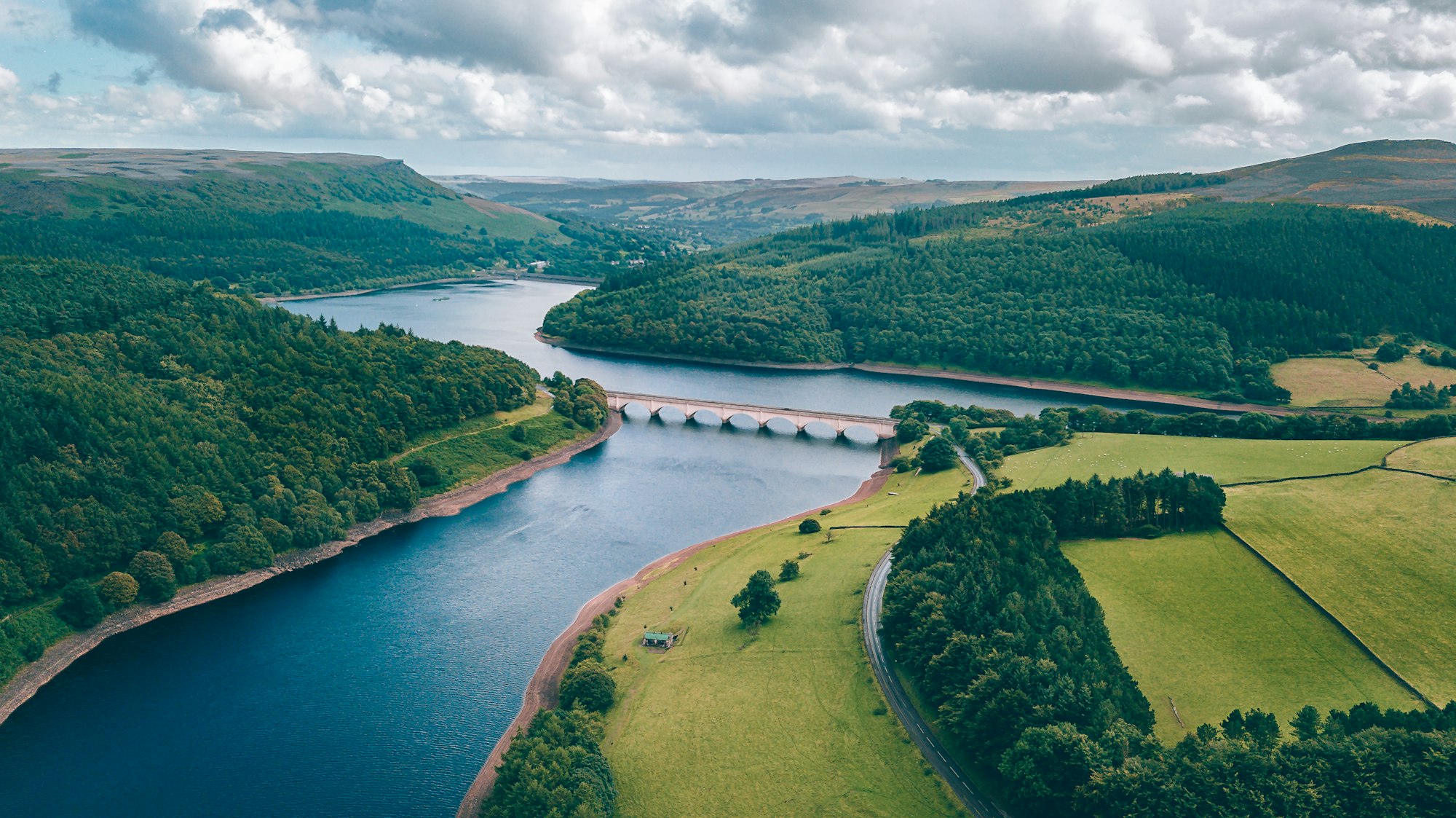Turning Point

The harsh sound made no sense. Ruth turned to face the creaking, crunching noise which came from across the river. She stood her ground even though the strangeness increased as she watched the trees whipping this way and that, their erratic behaviour belying the effects of wind, even a tornado. Then a sudden flash snapped the image into focus like an optical illusion resolving.
With a final bone-jarring crash, a battered 4x4 landed in the river, belly-up like a dead fly. Then there was silence, not even a bird call.
Two rapid heart beats and a long breath unstuck Ruth's boots from the river bank. She jumped down into the water and the cold shock seemed to be happening to someone else as she waded over slippery rocks towards the vehicle. Its maroon paint bore an air of bravado in spite of the vulnerable exposed belly and mangled frame.
Ruth bent down and peered through the windowless gap in the door. A woman hung in the seat-belt, loose-limbed as a puppet. Her eyes were closed as if she had decided to sleep upside-down, bat-like. Ruth tugged at the door. It was hopelessly jammed.
The windscreen was opaque, like crushed ice, and it fell apart with one kick. The river flowed through the car, as if entitled, and stroked the puppet-woman's hair till it rippled like seaweed.
Ruth strained to reach the buckle of the seat-belt but her arm was too short and her pack caught on the frame. She withdrew and waded to the bank, pulling off the pack and tossing it on to a dry rock. She glanced up to the tiny clearing where she had been about to have lunch before the sound intruded. That reminded her of her pocket knife and, throwing off wet gloves, she searched in the pack. Back at the car, the woman still hung, her face closed and peaceful, her limbs awkward while the river ran its fingers through her hair.
Ruth slid through the windscreen, tensing up as water insinuated itself under her clothes. Half upside-down, she sawed at the webbing with a knife intended to cut salami and capsicum for her sandwich. Reluctantly the belt began to part, slowly at first then, like a sawn branch, it gave in. Ruth turned her head and caught the weight of the woman on her shoulder, pushing up with all her strength to keep both their faces out of the water.
Her boots scrabbled for purchase but her numb legs let her down. The woman fell, crushing Ruth into the twisted metal of the doorpost. A ghostly groan filled Ruth's right ear and in panic she scuttled backwards through the windscreen like a crayfish. She told herself the groan was good, it meant that the woman was alive, and leaned back in to grasp a handful of hair. Cradling the tender skull like a lifesaver, Ruth drew the woman through the windscreen until her limbs floated straight and free. The curve of bone fitted her palms intimately. Gently she towed the woman out of the current, to the river's edge where the water thinned to a small pool over gravel. Although Ruth knew she should try to warm her somehow, it was beyond her to lift her up the bank and for the moment it was enough to have her out of the car, with her face in the air. Leaning down as though into a kiss, Ruth felt the woman's soft breath on her cheek.
A crimson drop fell into the water, thinned and dispersed like an inkblot. Another and another mingled to draw faint abstractions in the water. As Ruth crouched, numb, transfixed, she had a flash of Alice's face, held tenderly in their love-making. Impossible Alice whose temper and demands had driven Ruth into the bush on this winter solstice day - a portentous day which was to be a turning point, make or break. Here in the river, her emphasis on the magic of solstice felt contrived: Death stalked his victims every day, no one got out alive. A phrase came into Ruth's mind, a saying her father would use dismissively to tell her mother not to stress: "Life's too short”. It used to annoy Ruth's mother, she saw it as a lazy man's way out of an argument, but here in the cold river, gazing at a stranger's blood sketching patterns in the water, the phrase became a mantra, a warning, a way forward.
From the bank where the vehicle had indulged in its reckless roll to the river, a faint crashing began, then voices. Two men jumped the last few metres and splashed up to Ruth, shouting about cellphones and 111. Her first response was resentment: they had shattered her epiphany and broken up the fragile red pattern.
Then she snapped to and helped carry the woman to the bank where Ruth lay beside her, embracing her like a lover to share the little warmth she had left. The men rubbed them briskly with a T-shirt to bring back circulation, then covered them both with their jackets. One sat on the rocks like a guardian while the other scrambled back up to the road to await the rescue helicopter.
Ruth willed her warmth into the woman's limp body and thought about what she would say to Alice.